-
 Bitcoin
Bitcoin $116400
-0.36% -
 Ethereum
Ethereum $4033
3.40% -
 XRP
XRP $3.302
-1.26% -
 Tether USDt
Tether USDt $1.000
-0.02% -
 BNB
BNB $796.1
1.67% -
 Solana
Solana $177.8
1.89% -
 USDC
USDC $0.9999
0.00% -
 Dogecoin
Dogecoin $0.2314
4.09% -
 TRON
TRON $0.3381
0.14% -
 Cardano
Cardano $0.7989
1.22% -
 Stellar
Stellar $0.4496
-1.84% -
 Chainlink
Chainlink $20.42
9.42% -
 Hyperliquid
Hyperliquid $41.17
0.88% -
 Sui
Sui $3.914
3.77% -
 Bitcoin Cash
Bitcoin Cash $584.7
1.52% -
 Hedera
Hedera $0.2632
-0.54% -
 Avalanche
Avalanche $24.09
3.40% -
 Ethena USDe
Ethena USDe $1.001
-0.02% -
 Litecoin
Litecoin $123.2
1.33% -
 Toncoin
Toncoin $3.318
-0.04% -
 UNUS SED LEO
UNUS SED LEO $8.984
-0.05% -
 Shiba Inu
Shiba Inu $0.00001323
2.85% -
 Uniswap
Uniswap $10.90
4.41% -
 Polkadot
Polkadot $3.999
3.34% -
 Dai
Dai $1.000
0.01% -
 Cronos
Cronos $0.1630
9.64% -
 Bitget Token
Bitget Token $4.484
0.82% -
 Monero
Monero $272.4
2.44% -
 Pepe
Pepe $0.00001173
6.03% -
 Aave
Aave $290.8
2.88%
What are the main features of a smart contract?
Smart contracts automate agreements via code on a blockchain, offering immutability, transparency, and self-execution, eliminating intermediaries. However, security vulnerabilities necessitate rigorous auditing.
Mar 13, 2025 at 10:20 pm
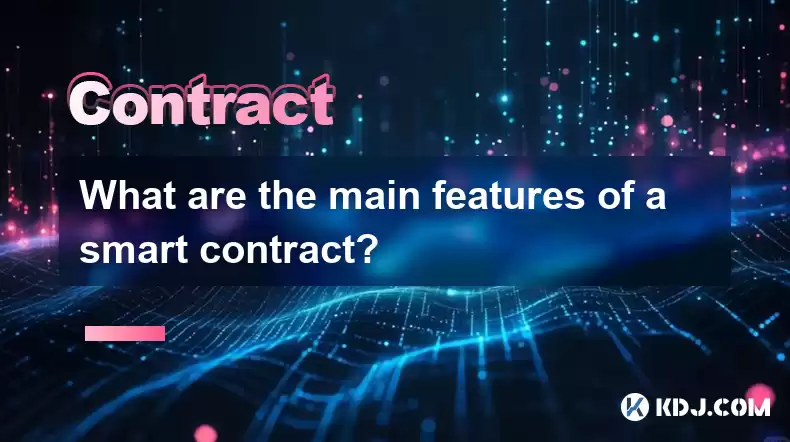
Key Points:
- Smart contracts automate the execution of agreements. Their core functionality relies on pre-defined conditions and cryptographic security.
- Immutability and transparency are key features, ensuring that once deployed, the contract's code cannot be altered without consensus (depending on the blockchain), and all transactions are viewable on the public ledger.
- Self-executing nature eliminates the need for intermediaries, increasing efficiency and trust.
- Security vulnerabilities, however, remain a significant concern, requiring careful auditing and development.
- Decentralized nature offers resilience and resistance to censorship.
What are the main features of a smart contract?
Smart contracts are self-executing contracts with the terms of the agreement between buyer and seller being directly written into lines of code. This code is stored on a blockchain, ensuring transparency and immutability. Unlike traditional contracts, which rely on intermediaries for enforcement, smart contracts automate the execution of agreements based on predefined conditions. This automation is a core feature, leading to significant efficiency gains.
One of the most crucial features is immutability. Once deployed to the blockchain, the code of a smart contract generally cannot be altered. This prevents fraudulent modifications or unilateral changes to the agreement, building trust and certainty for all parties involved. However, this also means that any errors in the initial code can be extremely difficult, if not impossible, to rectify.
Transparency is another hallmark. All transactions and data related to a smart contract are recorded on the public blockchain, providing a clear and auditable history for all participants. This openness fosters accountability and reduces the potential for disputes. The level of transparency can vary depending on the specific blockchain used and the privacy settings of the contract.
The self-executing nature of smart contracts eliminates the need for intermediaries such as lawyers or notaries. This streamlining reduces costs and speeds up the process of contract execution. The automation ensures that the terms of the agreement are fulfilled automatically upon the satisfaction of pre-defined conditions. This feature is particularly beneficial in situations where trust between parties might be an issue.
The decentralized nature of smart contracts offers several advantages. Because they reside on a distributed ledger like a blockchain, they are resistant to censorship and single points of failure. This decentralization increases security and reliability, as no single entity controls the contract's execution. This characteristic is fundamental to the trustlessness that smart contracts aim to provide.
Security, however, remains a paramount concern. Smart contracts are susceptible to vulnerabilities, and any flaws in the code can have significant financial consequences. Thorough auditing and rigorous testing are crucial before deploying a smart contract to a production environment. The complexity of smart contract code often requires specialized expertise to identify and mitigate potential risks.
Smart contracts utilize cryptographic security to ensure the integrity and authenticity of the contract's code and data. This cryptography underpins the trustless execution of the contract, guaranteeing that only authorized parties can interact with it and that the contract's terms are enforced as intended. This security is vital to maintaining the integrity of the agreement.
Another important aspect is the programmability of smart contracts. They can be designed to incorporate complex logic and conditions, allowing for highly customized agreements beyond the capabilities of traditional contracts. This programmability enables developers to create sophisticated solutions for various applications, such as decentralized finance (DeFi) and supply chain management.
The use of digital assets and tokens is frequently integrated within smart contracts. This integration enables the automated transfer of funds or other digital assets based on the fulfillment of contract conditions. This capability allows for seamless and secure transactions without the need for manual intervention, further enhancing efficiency.
Interoperability is becoming an increasingly important feature, allowing smart contracts on different blockchains to communicate and interact. This facilitates the creation of more complex and interconnected systems, expanding the potential applications of smart contracts across various industries. This interoperability is crucial for the wider adoption and integration of smart contract technology.
Frequently Asked Questions:
Q: What are the risks associated with smart contracts?
A: The main risk is the potential for vulnerabilities in the smart contract code. Bugs or exploits can lead to financial losses or the breach of contract terms. Thorough auditing and security testing are essential to mitigate these risks.
Q: How are smart contracts different from traditional contracts?
A: Traditional contracts rely on intermediaries for enforcement and are susceptible to disputes and delays. Smart contracts automate execution based on pre-defined conditions, increasing efficiency and transparency. They are also inherently more resistant to fraud due to their immutability.
Q: Can smart contracts be modified after deployment?
A: Generally, no. The immutability of smart contracts is a core feature. Any changes would require a new contract deployment, potentially impacting existing transactions or agreements. However, some advanced techniques allow for upgrades, but this often necessitates careful planning and implementation.
Q: What are some examples of smart contract applications?
A: Smart contracts have numerous applications, including decentralized finance (DeFi) protocols, supply chain management, digital identity verification, and escrow services. They are used to automate various processes and facilitate trustless transactions in a variety of industries.
Q: How secure are smart contracts?
A: Smart contract security depends heavily on the quality of the code. Thorough audits and security reviews are crucial. Despite cryptographic security, vulnerabilities can still exist, requiring continuous monitoring and potential updates (if possible given the nature of the smart contract). The security also relies on the security of the underlying blockchain itself.
Disclaimer:info@kdj.com
The information provided is not trading advice. kdj.com does not assume any responsibility for any investments made based on the information provided in this article. Cryptocurrencies are highly volatile and it is highly recommended that you invest with caution after thorough research!
If you believe that the content used on this website infringes your copyright, please contact us immediately (info@kdj.com) and we will delete it promptly.
- Shiba Inu (SHIB) in the Crypto Landscape: Community, Trends, and Future Outlook
- 2025-08-09 20:30:12
- Lasers in Modern Warfare: Iron Beam and the Future of Defense
- 2025-08-09 20:30:12
- Maxi Doge Presale: The Meme Coin That's Pumping Iron and Prices!
- 2025-08-09 19:10:11
- Rare Coin Warning: Don't Get Fooled by That 1p Coin!
- 2025-08-09 18:50:12
- Cardano, Unilabs, and Tron Price: Decoding the Latest Crypto Buzz
- 2025-08-09 18:30:12
- Aerodrome Finance: Price Targets and the Bullish Channel - What's Next?
- 2025-08-09 18:50:12
Related knowledge
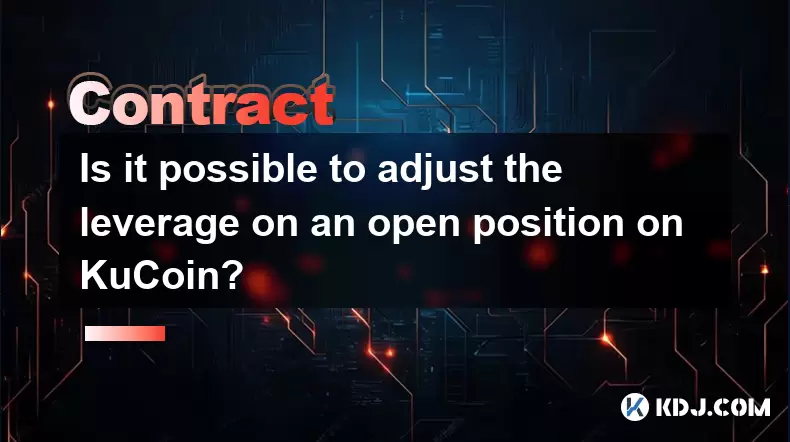
Is it possible to adjust the leverage on an open position on KuCoin?
Aug 09,2025 at 08:21pm
Understanding Leverage in KuCoin Futures TradingLeverage in KuCoin Futures allows traders to amplify their exposure to price movements by borrowing fu...
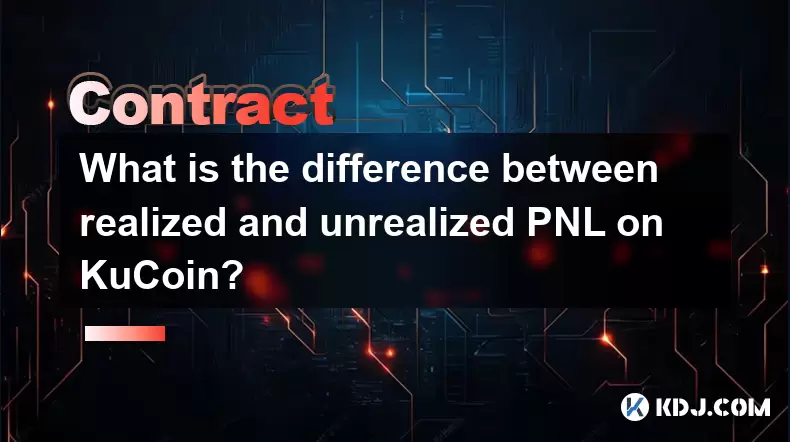
What is the difference between realized and unrealized PNL on KuCoin?
Aug 09,2025 at 01:49am
Understanding Realized and Unrealized PNL on KuCoinWhen trading on KuCoin, especially in futures and perpetual contracts, understanding the distinctio...
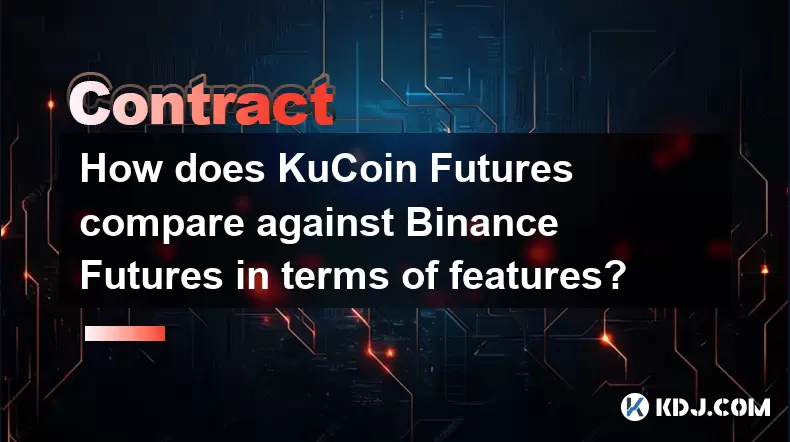
How does KuCoin Futures compare against Binance Futures in terms of features?
Aug 09,2025 at 03:22am
Trading Interface and User ExperienceThe trading interface is a critical component when comparing KuCoin Futures and Binance Futures, as it directly i...
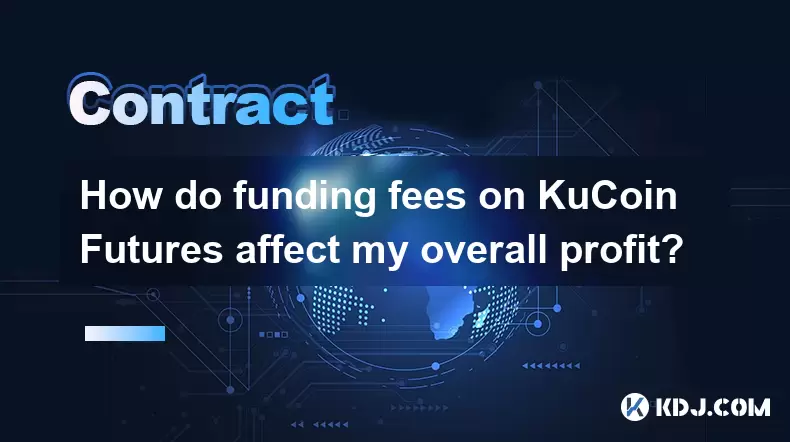
How do funding fees on KuCoin Futures affect my overall profit?
Aug 09,2025 at 08:22am
Understanding Funding Fees on KuCoin FuturesFunding fees on KuCoin Futures are periodic payments exchanged between long and short position holders to ...
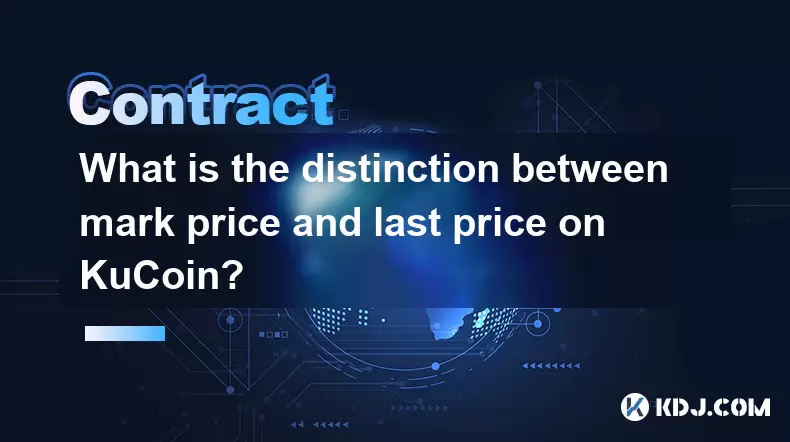
What is the distinction between mark price and last price on KuCoin?
Aug 08,2025 at 01:58pm
Understanding the Basics of Price in Cryptocurrency TradingIn cryptocurrency exchanges like KuCoin, two key price indicators frequently appear on trad...
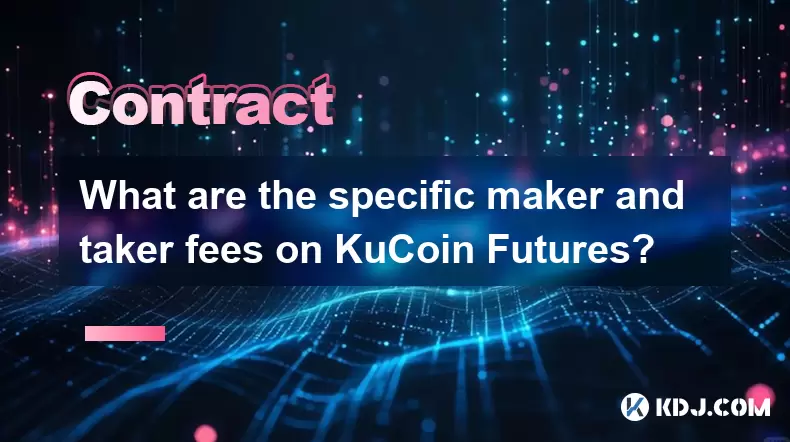
What are the specific maker and taker fees on KuCoin Futures?
Aug 08,2025 at 08:28am
Understanding Maker and Taker Fees on KuCoin FuturesWhen trading on KuCoin Futures, users encounter two primary types of fees: maker fees and taker fe...

Is it possible to adjust the leverage on an open position on KuCoin?
Aug 09,2025 at 08:21pm
Understanding Leverage in KuCoin Futures TradingLeverage in KuCoin Futures allows traders to amplify their exposure to price movements by borrowing fu...

What is the difference between realized and unrealized PNL on KuCoin?
Aug 09,2025 at 01:49am
Understanding Realized and Unrealized PNL on KuCoinWhen trading on KuCoin, especially in futures and perpetual contracts, understanding the distinctio...

How does KuCoin Futures compare against Binance Futures in terms of features?
Aug 09,2025 at 03:22am
Trading Interface and User ExperienceThe trading interface is a critical component when comparing KuCoin Futures and Binance Futures, as it directly i...

How do funding fees on KuCoin Futures affect my overall profit?
Aug 09,2025 at 08:22am
Understanding Funding Fees on KuCoin FuturesFunding fees on KuCoin Futures are periodic payments exchanged between long and short position holders to ...

What is the distinction between mark price and last price on KuCoin?
Aug 08,2025 at 01:58pm
Understanding the Basics of Price in Cryptocurrency TradingIn cryptocurrency exchanges like KuCoin, two key price indicators frequently appear on trad...

What are the specific maker and taker fees on KuCoin Futures?
Aug 08,2025 at 08:28am
Understanding Maker and Taker Fees on KuCoin FuturesWhen trading on KuCoin Futures, users encounter two primary types of fees: maker fees and taker fe...
See all articles

























































































